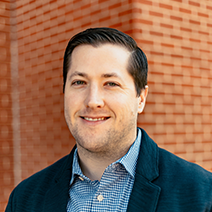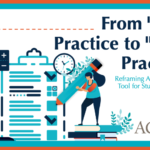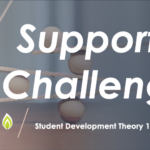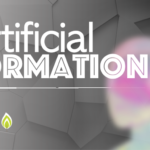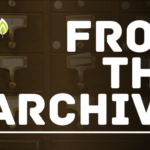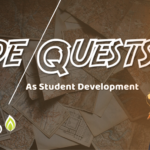EDITORS NOTE: As a reminder, our Ideas in Action series engages current research from a Christian Perspective. We hope to offer you three things. First, we will provide a brief overview of the scholars’ argument and how they got there. Second, we will engage their work from a theological perspective, calling out what aligns with scripture and helping us think critically about what doesn’t. Third and finally, we will provide very practical implications including a set of questions you could discuss at your next staff meeting. Our hope is that over time, Ideas in Action would become a library of practical resources for the association that could be referenced for years to come.
Other posts in the series
- Ideas in Action No 1: Assessing our Assessment
- Ideas in Action No 2: Expanding Your Leadership Educator Competencies
Ideas in Action No. 3: Refilled – Well-being Re-Examined for Christian Student Development Practitioners
Regarded as optimal experience and functioning in life, what do you think contributes most to your well-being? What about as it relates to your work? Is it linked to your purpose or how you influence the lives of students? Is it wrapped up in a good work-life balance? Is it your accrued vacation hours or the freedom to be creative in your position? Whatever the case, we can probably all agree that our well-being as student development professionals or administrators is important.
We can further probably all agree that our well-being has been assaulted, at some point and in some way, by the demands often present in our field. Whether it is taxing on-call rotations or late-night email catch-up, there are many factors of our work that can start to diminish our well-being if left unaddressed. In short, when our student development efforts lead us to feeling overwhelmed, our well-being suffers.
Some scholars have addressed this pressing problem for our field. In a recent study, Chessman (2021) sampled 2,414 student affairs professionals about their well-being (you can access the article here). She found that 52% of the variance in well-being scores could be explained by the 14 variables used in her analysis, which included measurements like demographics, satisfaction, health, stress, or control at work.
Interestingly, work-life balance was not significant in her regression model, meaning that, despite the common (sometimes shouting) sentiment from student development professionals, work-life balance issues do not necessarily influence well-being. That said, she draws an important distinction: while a better work-life balance may indeed make people more satisfied with their work environment, it does not necessarily impact well-being in a significant way. Though work-life issues are important, Chessman finds that the quality of one’s work environment is one of the most essential contributors. In other words, sometimes the thing we think is most impacting our well-being is not what is actually impacting our well-being.
Chessman’s study provides a good insight into the elements of our student development work that predict our well-being. These findings are helpful, as she notes how a “low well-being score for these professionals may adversely impact the experience of students outside the classroom” (p. 159). However, she identifies how the well-being literature regarding our work rarely takes a comprehensive or whole-person approach, which begs the question of what’s missing?
As Christians, it is helpful to reflect on our well-being in a whole-person way that allows us to see how God transcends our work and our responsibilities. Although considering our well-being through themes like job satisfaction, positive and negative affect, or work-life balance are important, they ultimately miss a key part of us—a central part of our identity, our soul. Overlooking the care of our soul when considering well-being measures is misstep that neglects the deep and personal relationship with Christ that is vital to our flourishing; the community with our creator that is so important to truly experience optimal functioning in life.
Too often we view our soul care as something separate from our self-care – a detached strategy to promote our well-being. We may feel that a day off work to do what we want, or watching Netflix, or zoning out on our phone off the clock for a bit is just what we need to refuel. But what is the true source of longing that we are feeling? What will actually fill us up? We often drain ourselves for the sake of our students and we feel weary. In response, disconnecting is not the solution – it is merely an avoidance mechanism. It is clear we need to be “refilled,” and there are many applicable ways to do this.
By re-filling, it is important to avoid merely adding a “God” box onto our list of things that promote our well-being, as if checking the box indicates the faith component is complete. Though a right order of our lives is necessary, simply adding such a category to the lists above promotes a Christ-added approach and limits an overarching Christ-animated paradigm for our work (Glanzer et al., 2020). Rather, we should practice asking how God is present in all of the areas (i.e., whole-person) surrounding our well-being. I would argue by the very nature of our Christian identity we are called to pursue our well-being in a more virtuous, holy, and therefore holistic, way.
Practically, this process could incorporate spiritual disciplines around retreating. This opportunity for soul-care offers a time to pull away, draw close to God, and reflect on why all the other things we do (including our work) matter so much. It may incorporate disciplines such as fasting, prayer and journaling, or memorizing scripture. The point is to focus on well-being in a way that allows us to re-engage our work with a full cup, bringing our best selves to work, filled with God’s grace and mercy, so we might glorify Him.
Well-being from a Christian student development perspective might also weave in liturgies such as Sabbath rest. Glanzer et al. (2020) emphasize that if staff are not given a Sabbath rest then “the Christian college is failing to model some of the most fundamental things it tries to communicate to students” (p. 146). In practicing a Sabbath time, it is important to remember this is not a space to simply not work, but rather to actively rest. It may sound counterintuitive, but it is this rest that can then recharge and refill us through a renewed and corrected view of Jesus in our lives.
In addition to Chessman’s findings, these forms of worship above ought to help us understand what leads to our well-being as Christians. Jesus is clear: “Come to me, all who labor and are heavy laden, and I will give you rest. Take my yoke upon you, and learn from me, for I am gentle and lowly in heart, and you will find rest for your souls. For my yoke is easy, and my burden is light” (Matt 11:28-30). Within this scriptural truth, as student development professionals we must feed our well-being with the bread of life – the Almighty King of kings.
In sum, things like satisfaction, health, and control, as shown by Chessman, affect our well-being in student development. And—an important point here—these are all things we should be aware of in order to supplement our well-being to lead healthy work lives. However, in addressing our well-being in the field from a distinctly Christian perspective, we ought to consider how Christ enlivens this process and calls us to be refilled with Him through spiritual or virtuous disciplines, not merely through more control at work, more satisfaction with our job, or more positive affect (e.g. optimism, energy) related to our work. In this way, we are pursuing our well-being in a more worshipful, whole-person, and God-glorifying way.
Questions to Ponder in Your Next Staff Meeting
- Why is it important to think about our well-being beyond measures like job satisfaction, positive/negative affect, or purpose?
- And in doing so, how can we avoid simply creating a “God” box to check-off in promoting well-being?
- What does it look like in our area/unit to healthily tend to our well-being?
- Why is this crucial to the work we do in student development?
- Are there any spiritual practices our office might implement in order to foster our well-being more holistically?
- What does this look like collectively as a unit? What does this look like individually as a staff member?
References
Chessman, H. M. (2021). Student affairs professionals, well-being, and work quality. Journal of Student Affairs Research and Practice, 58(2), 148-162.
Glanzer, P., Cockle, T. F., Jeong, E. G., & Graber, B. N. (2020).Christ-enlivened student affairs: A guide to Christian thinking and practice in the field. ACU Press.


